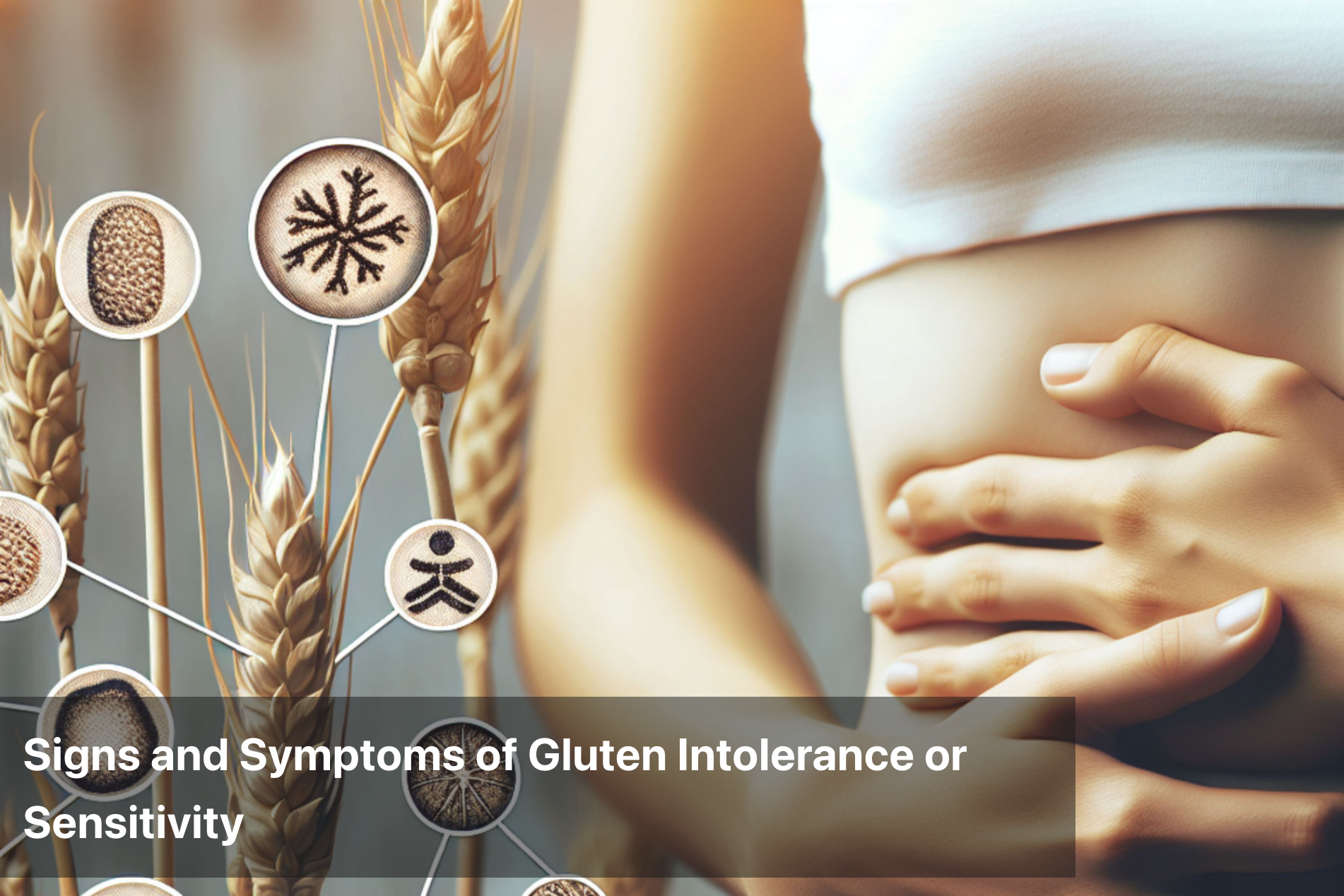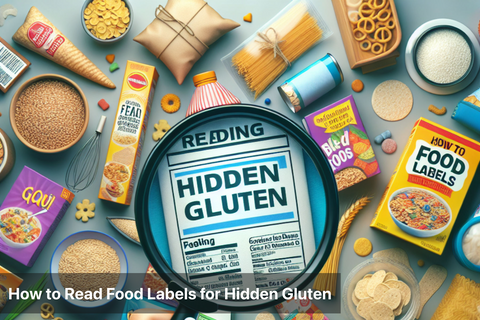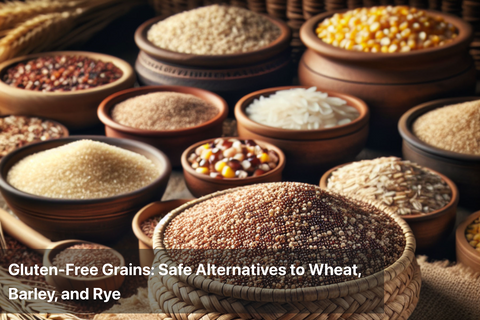
Signs and Symptoms of Gluten Intolerance or Sensitivity
Gluten intolerance or sensitivity has become a growing concern, affecting individuals across all age groups. While not as severe as celiac disease, gluten intolerance can significantly impact daily life and well-being. It involves adverse reactions to gluten—a protein found in wheat, barley, and rye—triggering a range of symptoms that can vary in intensity and presentation from one person to another.
Recognizing the signs early and understanding the root causes behind gluten sensitivity can help individuals make informed choices, improve gut health, and avoid prolonged discomfort. Unlike food allergies that typically cause immediate reactions, gluten sensitivity often presents with delayed and subtle symptoms, making it difficult to identify without awareness.

What Causes Gluten Intolerance or Sensitivity?
Gluten intolerance or non-celiac gluten sensitivity (NCGS) is not fully understood, but several potential triggers and risk factors have been identified. Unlike celiac disease, NCGS does not involve autoimmune damage to the intestinal lining, but it still leads to noticeable discomfort after consuming gluten.
-
Immune System Activation: In gluten-sensitive individuals, gluten may trigger a low-grade immune response that leads to inflammation without the autoimmune damage seen in celiac disease.
-
Gut Microbiome Imbalance: Disruptions in the gut bacteria may influence how the body reacts to gluten. A compromised gut lining may allow gluten fragments to pass into the bloodstream, causing systemic symptoms.
-
Genetic Predisposition: Though less studied than in celiac disease, there may be a genetic component that increases the likelihood of gluten sensitivity in some people.
-
Chronic Stress or Infections: Long-term stress, viral infections, or antibiotic use may increase gut permeability, making the body more reactive to gluten and other food proteins.
Key Symptoms of Gluten Intolerance
Gluten sensitivity can affect different systems in the body, ranging from the digestive tract to the nervous system. Symptoms often mimic other conditions, which can lead to misdiagnosis or delayed identification.
-
Digestive Discomfort: Bloating, gas, abdominal pain, and irregular bowel movements are among the most common symptoms. Some may experience diarrhea, while others face constipation or alternating patterns.
-
Fatigue and Brain Fog: Feeling tired despite adequate sleep and having trouble concentrating or remembering things is frequently reported by those with gluten sensitivity.
-
Headaches and Migraines: Frequent unexplained headaches or migraines may be linked to gluten consumption, especially when paired with other symptoms.
-
Skin Issues: Conditions like eczema, acne, or rashes may flare up after eating gluten. Some people develop small, itchy bumps on the skin, typically around the elbows or knees.
-
Joint and Muscle Pain: Gluten can trigger inflammation, leading to pain in the joints or muscles, especially in people already prone to autoimmune or inflammatory conditions.
-
Mood Changes: Anxiety, depression, and irritability are surprisingly common. These symptoms may stem from gut-brain axis disturbances caused by gluten.
-
Weight Fluctuations: Gluten intolerance can lead to nutrient malabsorption, causing either unintentional weight loss or difficulty in losing weight.
Less Obvious Symptoms You Might Overlook
Some gluten intolerance symptoms are subtle and easily attributed to other lifestyle factors. These signs often go unnoticed but can indicate an underlying sensitivity:
-
Frequent Mouth Ulcers or Canker Sores
-
Iron-deficiency Anemia without an apparent cause
-
Menstrual irregularities or fertility challenges
-
Tingling or numbness in hands and feet (neuropathy)
-
Frequent episodes of anxiety or panic attacks without a trigger
Tracking symptoms over a few weeks using a food journal can help connect patterns between gluten intake and health issues.
Comparison Between Gluten Intolerance, Celiac Disease, and Wheat Allergy
Understanding how gluten intolerance differs from other conditions is crucial for managing symptoms and choosing appropriate diagnostic tests.
|
Condition |
Type of Reaction |
Key Symptoms |
Diagnosis Method |
|---|---|---|---|
|
Gluten Intolerance |
Non-autoimmune, delayed |
Bloating, fatigue, brain fog, skin rashes |
Elimination diet + symptom tracking |
|
Celiac Disease |
Autoimmune |
Diarrhea, weight loss, anemia, nutrient issues |
Blood test + intestinal biopsy |
|
Wheat Allergy |
Allergic (IgE) |
Hives, swelling, respiratory issues, anaphylaxis |
Allergy test (IgE antibodies) |
Only celiac disease and wheat allergy can be diagnosed through clinical testing. Gluten intolerance is typically diagnosed by ruling out other conditions and observing symptom improvement after gluten removal.
Common Foods That Trigger Symptoms in Sensitive Individuals
Gluten is found in a variety of foods—both obvious and hidden. People with sensitivity must become vigilant label readers to avoid unintentional exposure.
|
Category |
Common Sources of Gluten |
|---|---|
|
Grains |
Wheat, barley, rye, spelt, semolina, bulgur |
|
Baked Goods |
Bread, cakes, pastries, cookies, crackers |
|
Processed Foods |
Packaged soups, salad dressings, sauces, gravies |
|
Beverages |
Beer, malt drinks, flavored coffees |
|
Surprising Sources |
Soy sauce, imitation meats, some chocolates and chips |
Gluten can be hidden under names like “malt flavoring,” “modified food starch,” or “hydrolyzed vegetable protein,” which makes identification difficult without proper awareness.
What Happens If Gluten Intolerance Is Ignored?
Long-term gluten consumption despite sensitivity can contribute to chronic inflammation, poor gut health, and weakened immunity. Persistent symptoms can affect work productivity, emotional well-being, and overall quality of life. Over time, nutrient deficiencies such as iron, vitamin D, and B12 can lead to more serious complications like anemia, bone weakness, and neurological issues.
Children with undiagnosed gluten intolerance may face challenges in growth, development, and behavior. Early identification and dietary changes can make a significant difference in health outcomes.
How to Manage Gluten Sensitivity Effectively
The most effective way to manage gluten intolerance is through a gluten-free diet. Unlike celiac disease, where even trace amounts of gluten can cause damage, those with gluten sensitivity may tolerate small quantities. However, most find the best relief by eliminating gluten entirely.
-
Read labels carefully and choose certified gluten-free products.
-
Cook meals at home using whole foods like rice, millet, lentils, vegetables, and fresh meat.
-
Explore gluten-free substitutes such as almond flour, coconut flour, and Lofoods’ range of low-carb, gluten-free snacks.
-
Supplement with probiotics to restore gut flora and improve digestion.
Working with a nutritionist can help create a balanced gluten-free diet that ensures adequate intake of fiber, iron, and B vitamins.

Conclusion: Listening to Your Body for Better Health
Gluten intolerance or sensitivity can manifest through a wide array of symptoms, from digestive distress to mood changes. Many people live with discomfort for years before identifying gluten as the trigger. By recognizing the signs early and understanding the underlying causes, it's possible to take control of your health and feel better with simple dietary changes.
Lofoods supports this journey with gluten-free, wholesome alternatives designed for taste, convenience, and wellness. Whether you’re newly exploring a gluten-free lifestyle or managing long-standing intolerance, making mindful food choices can pave the way to improved energy, digestion, and quality of life.
This Blog post is an initiative by Lo! Foods, to provide accurate and Nutritionist / Doctor approved information related to Health. Lo! Foods is India's leading brand for Everyday Functional Foods. Foods designed for specific Health conditions or Needs. Lo! Foods also runs India's largest range of Low Carb Healthy Cloud Kitchens, under the brand names of Lo!, ProteinChef, ATH (All Things Healthy) and DiabeSmart.















Leave a comment
Your email address will not be published.